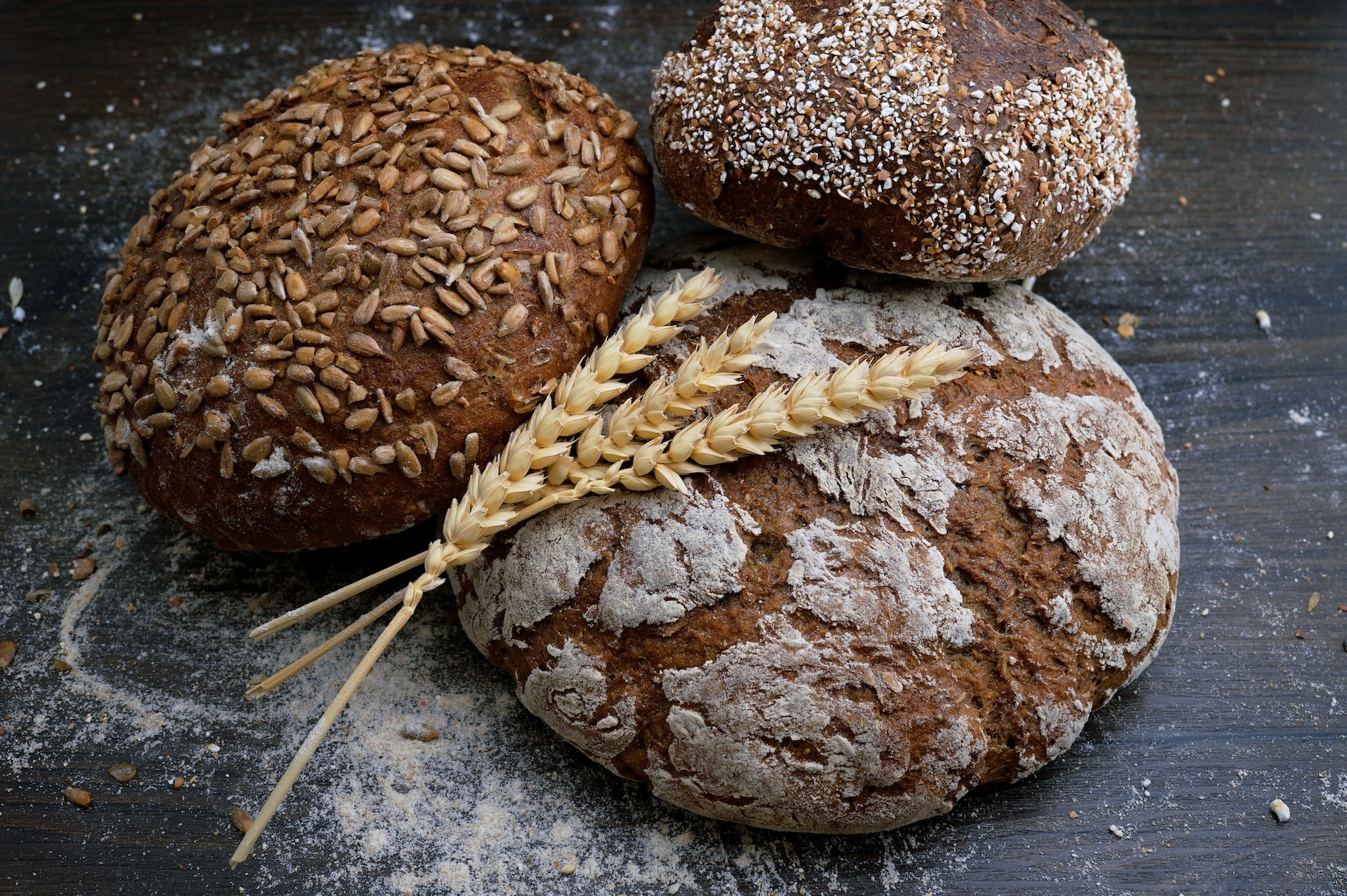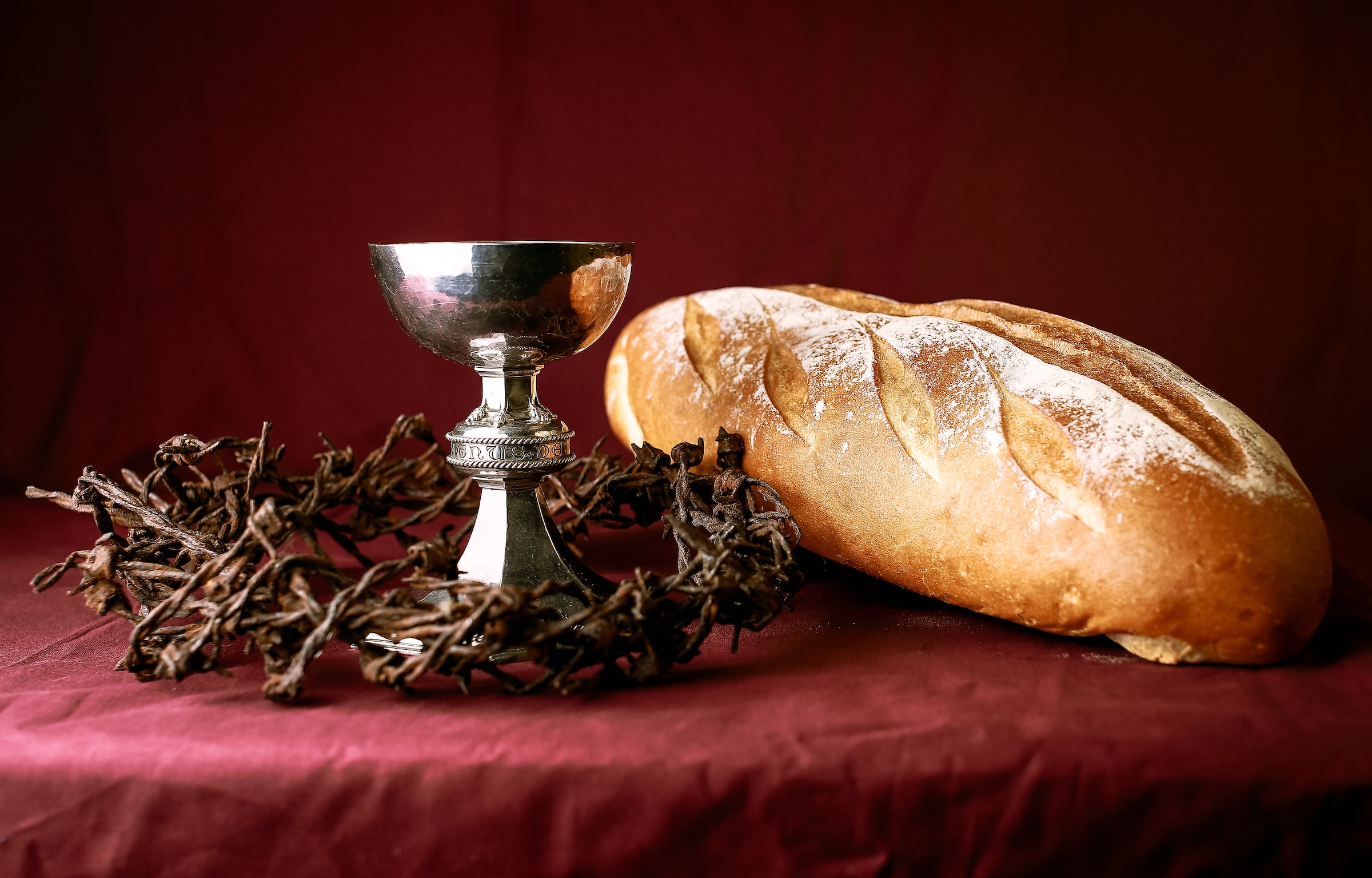Reflections on bread
Sunday, 3 December 2023
| Gary Harch

‘Give us today our daily bread’ is a familiar line, which like most of the Lord’s prayer seems to be reasonably straightforward. As the war between Israel and Hamas continues, in Palestine, as well as in many other places, there are many who are starving. They don’t have any bread – not today’s bread, not tomorrow’s bread.
I still remember clearly a lecture many years ago, where it was proposed that an equally valid translation is ‘give us today, tomorrow’s bread’. While this translation is unlikely to be officially accepted, the implications are wide-ranging. Can I as an individual, or we as a community, borrow any more from the future without creating catastrophic scenarios? Is bread as practical and as symbolic in our lives today as it was in Biblical times? There were many wars and famines in Biblical times when people needed both their daily bread and to store grain for the unpredictable future.
When I grew up in the suburbs of Brisbane, a baker did the rounds. Our family bought fresh bread every weekday and double the amount on Friday to last the weekend. As a special treat, once a fortnight on a Thursday afternoon, my mother bought me a cream bun. While there was plenty of home baking, I can’t remember baking bread at home.
As a teenager I was in a Church musical called ‘Bread’. Innovative for its day, the scriptural passages were familiar; but after 40 years ordained, I now see more connections between all the individual scenes. One line that has stayed in my mind ever since is: ‘Why do you work your heart out for that which is not bread?’ Touring different churches with that youth group was one of the influences that led to me offer for the priesthood, a practical Eucharistic life of bread and wine.
I’m sure you have your own personal stories about bread. Here are a couple you may wish to reflect on. In Toowoomba, after the floods of 2010, as in many towns in SE Qld much of the road access was destroyed, limiting the transport of food into shops. This was particularly noticed in the staples like bread, milk and meat. Customers were restricted in how much they could buy. One event that made the local news was when one shopper was asked not to take an extra loaf to allow others to have one. She took that loaf out of her trolley, threw it on the floor and while stamping on it, shouted, ‘If I can’t have it no one else will’. I wonder what was the trigger point for such extreme action. Why was that one loaf of bread so important?
You may also remember what it was like during the worst of Covid. Aside from having security guards on toilet paper, again bread was often in limited supply on supermarket shelves and flour was hard to purchase. For me that was one of the symbolic aspects of the breakdown in the supply chain. There is no bread. Just a hint – but no more than that in our society where there is so much – of what it could be like for those in famine. Recently I was advised by a colleague, who bakes bread, that the shop where she purchases bulk flour never ran out during Covid. Most likely most of us are dependent on factory bread and didn’t think about other options. (By legislation white bread in Australia now has to contain certain nutrients to assist those who become too dependent on eating only bread.) Apparently, the slow process of handmaking sour dough became popular during the lockdowns. I wonder if it has continued.
I have also been advised about the practice of one supermarket chain. Have you wondered why, a few years ago, if you went to the supermarket late in the day, most of the bread had been sold? You either missed out or purchased a loaf not to your normal liking. These days there mostly seems to be bread on the shelves all the time. Apparently, the supermarket doesn’t buy the bread from the suppliers. The suppliers have to keep the shelves stocked with bread at all times. Then, late at night they have to remove all the bread left over and bring in fresh supplies. Surely with the waste that is generated, even if it is donated to volunteer food outlets, this is another way of borrowing from the future.
The war in Ukraine continues to have widespread global implications. In July Russia again stopped cooperating with the shipping of grain, and as a result wheat prices surged. An ABC program highlighted that the soaring process were a boon to Australian farmers. They were careful to emphasise that no one was delighted at this; it was simply a consequence of Australia being an integral part of the worldwide market of wheat. In 2022 the United Nations was told that the world had 10 weeks supply of wheat. While some countries are able to stockpile wheat, others have very limited facilities and any breakdown in shipping means people starve. You might like to think about the biblical story of stockpiling wheat for the seven years of the good time to be able to see Egypt through the next seven years of drought. It is impossible now for the world to stockpile that much grain. We are globally interdependent.
Four years ago I received a bread maker for my birthday (at my request). I have thought for a long time about the symbolism of a priest who gives out bread as well as celebrating the Eucharist. People have continued to receive a loaf of bread from me for many different occasions. I have improved on my early efforts, and for those who can tolerate gluten, the smell and warmth of freshly baked bread is a delight!

A tradition in the Russian Orthodox Church is to welcome visitors to your place with a loaf of bread, traditionally with Caraway seeds and a small bowl of salt. If the visitor breaks a piece of bread off the loaf, dips it in the salt and eats it, then that symbolizes that they come in peace. The visitors also get to keep the loaf! This tradition is found in various forms, both sacred and secular, across many countries.
I take a loaf of my freshly baked bread to an organisation where I volunteer. There is always a waiting list for those who want the crust; and a slice of fresh bread with butter and vegemite is the preferred option. There is certainly an age-dependent factor on what we prefer to spread on our bread. For my grandchildren it is Nutella.
Like Australian eucalyptus trees, in some countries wheat has become an invasive species. An Australian Aid program in Eastern Africa has been helping the local farmers to replace introduced wheat with the original millet. In that country millet is far more tolerant of the climate and thus easier to grow. Part of the program includes re-introducing traditional recipes that use millet. This is a reminder that the Biblical symbolism of wheat and bread is culturally and geographically specific to a part of the world. Would a biblical translation of corn instead of wheat make more sense to the indigenous population of, for example, Central and South America?
Covid not only brought about shortages but also a change in how many denominations celebrated the Eucharist. In the Anglican Church, with which I am familiar, the regular receiving of the bread and wine ceased. This caused no end of debate. Suffice to say that even though life has returned to some form of normal, it is not the same as in pre-pandemic days. Neither is the celebration of the Eucharist. If, for very good health reasons, hundreds, perhaps thousands of years of tradition of receiving the Eucharist could be suddenly modified by a pandemic, perhaps a drastic climatic change might make us change the translation of the Lord’s prayer.
After this short tour of wheat and bread I return to my opening question.
What might the prayer, 'Give us today our daily bread', mean for us in a world where many live in relative abundance, characterised by supermarket bread, global interdependence and supply chain vulnerability? As we continue to pray the Lord’s prayer both within our churches and on many formal civic occasions, do we assume there will always be ‘daily bread’? In our conversations about the ecology of our planet, do we include our ‘daily bread’? When we are overconsuming (look up information on ‘Earth Overshoot Day’) are we too easily accepting the use of tomorrow’s bread? When we witness hunger on our TVs, how do we continue to pray the Lord’s prayer? Once again I have started to say the Lord’s Prayer slowly, knowing a sequence of my actions might be to: pray, gather information, offer practical support and challenge the unjust structures of society.
Gary Harch is a Residentiary Canon at St John's Anglican Cathedral in Brisbane. He recently retired from full time ministry, after last serving as the Parish priest at St Mary's Kangaroo Point. He has a Bachelor of Surveying and a Bachelor of Arts, with special interests in pipe organs, stained-glass windows, environmental theology and good governance.
Image credits
Cereal and three buns by Wesual Click on Unsplash.
Bread on black metal stand by James Coleman on Unsplash.